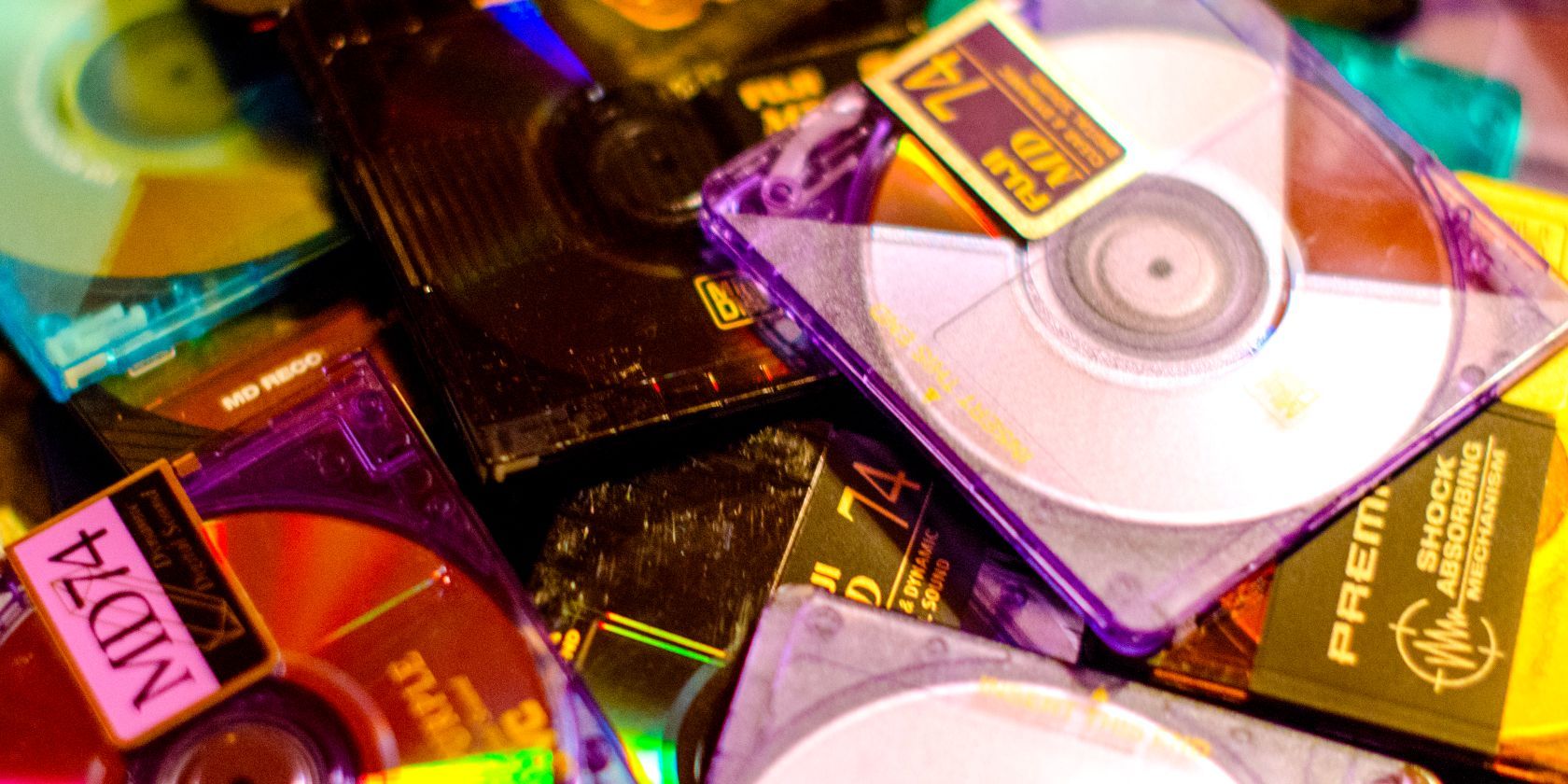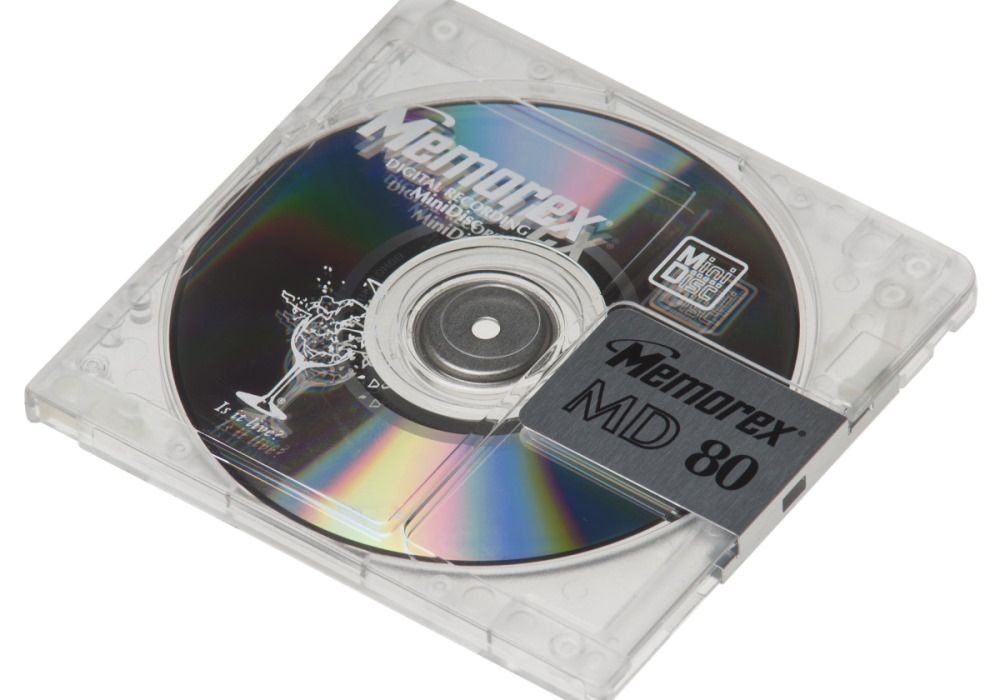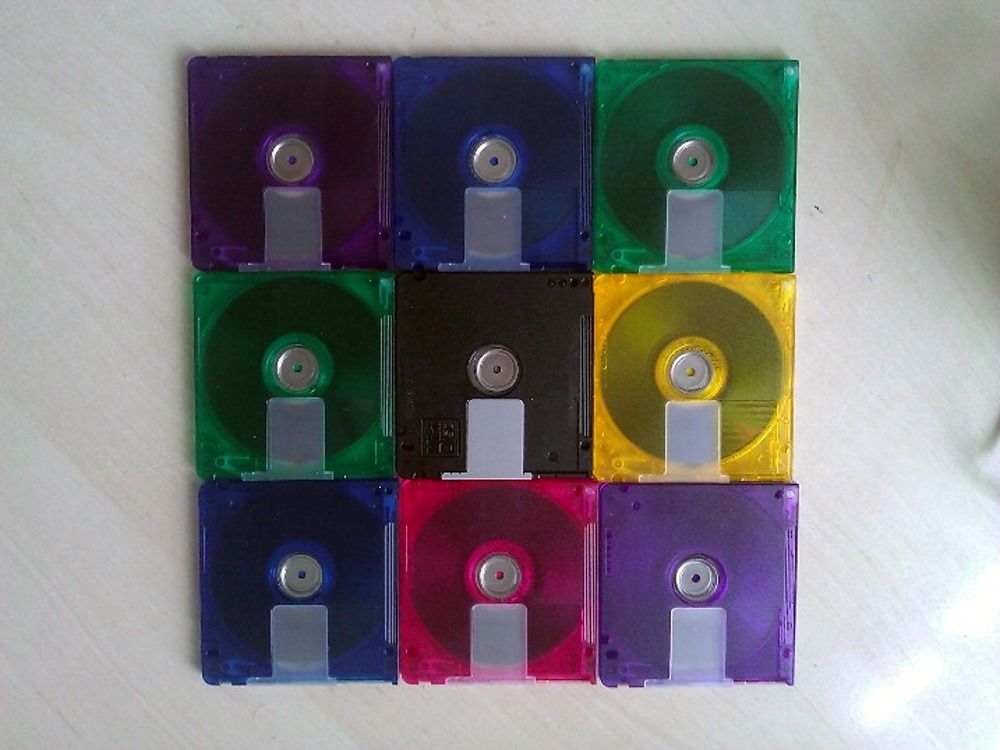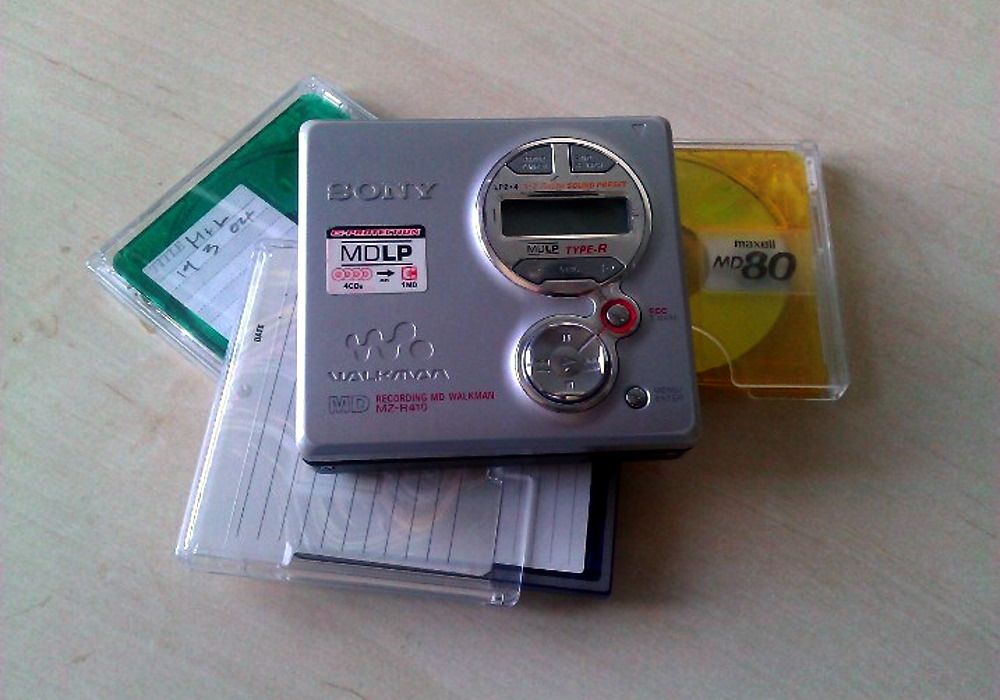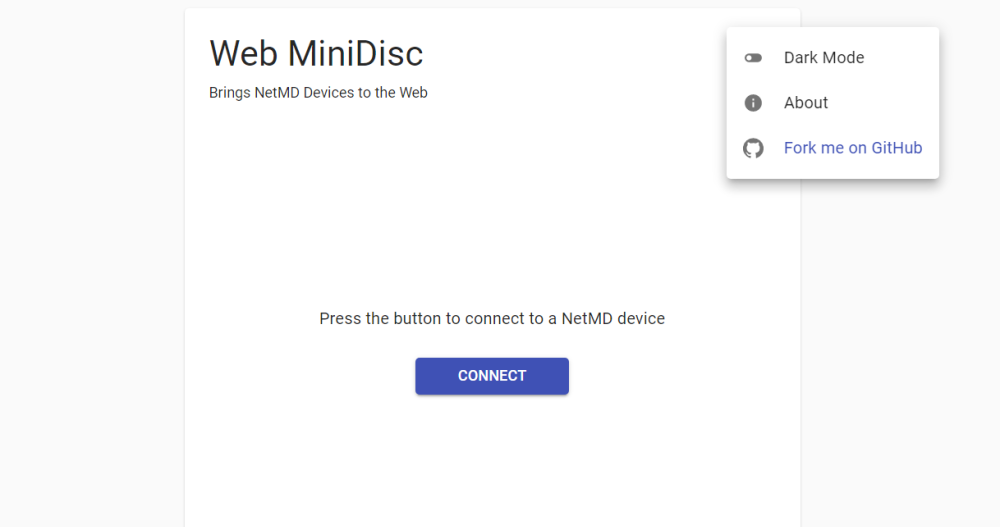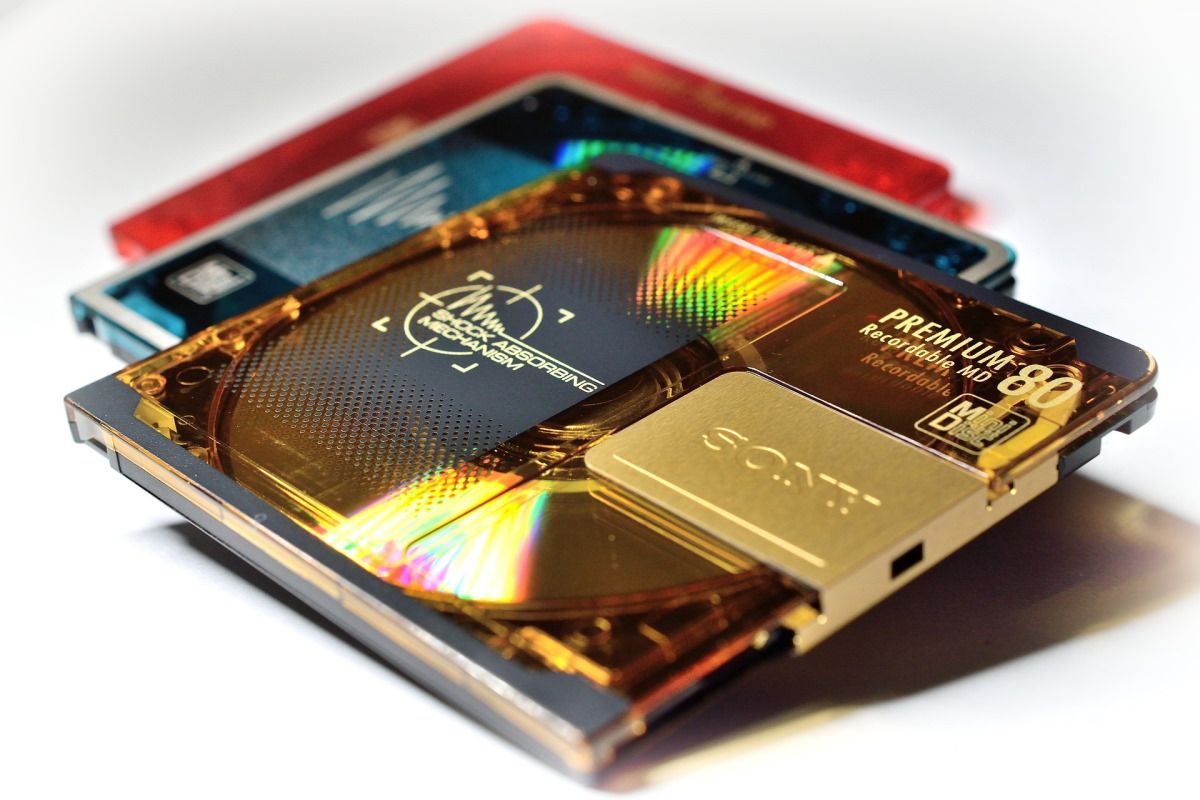MiniDisc was a popular format among music enthusiasts in the late 1990s but found itself overlooked in favor of MP3.
You may have a collection of albums and recordings on MiniDisc, filling a box at the back of your wardrobe. It is relatively simple to convert vinyl and tape to computer, enabling you to either place the originals in storage or discard them. But what about MiniDisc?
As obsolete formats become fashionable again, what exactly can you do with your old MiniDisc player and collection?
What Is a MiniDisc?
A portable data storage format, MiniDisc is magneto-optical, meaning that data is stored on a magnetic disc using a laser. While the mechanics of this are naturally more complicated, MiniDisc is seen by many (perhaps incorrectly) as a fusion between digital and analogue audio.
Offering a capacity of 60 to 80 minutes of audio (or 1GB of Hi-MD data), MiniDisc was launched by Sony in 1992. Other manufacturers including Philips and JVC also released MiniDisc players and discs but stopped production in the 2000s. The final players from Sony were sold in 2013.
Benefits of MiniDisc include:
- Portability
- Player requires a single AA battery
- Audio data compression
- Track cueing
- Copy protection
- Anti-skip feature
- Simple operation
Meanwhile, the second generation of MiniDisc, Hi-MD, supported MP3.
MiniDiscs measure 68x72x5mm. Small metal discs in a plastic case with a door, a MiniDisc resembles a 3.5-inch floppy disc.
Several formats in the 1990s used the "disc in a housing" design. Media that resembles MiniDisc includes the Mini CD, Mini DVD, and Iomega Zip. None of these can be inserted into a MiniDisc player, however.
1. Copy MiniDisc to Your Computer’s Hard Drive
The most obvious solution is to copy the audio tracks stored on your MiniDiscs to your computer. This is easier than it sounds.
MiniDisc players let you accurately cue the position of the disc so copying what you need shouldn’t be difficult. They also allow you to “mark” positions on the disk. This lets you easily return to that point, useful if you’re only planning on recording specific items.
With the right software on your computer (for instance, Audacity) you can then clean up any audio issues. Fortunately, as MiniDisc is a high quality audio medium, it is unlikely that you will encounter much bad audio.
2. Use Your Colored MiniDiscs as Modern Art
Like all old formats and hardware, there is a good reason to hold MiniDisc in high esteem.
Already these devices occupy places in museums, with discs illustrating the portability of the format. Many discs were issued in a range of fantastic colors, from the standard black to more impressive translucent pinks, reds, oranges, blues, and yellows.
What better use for these items, then, than as a modern art installation? It might highlight the colorful nostalgic yearning for a time lost when every summer day was painted with great music.
3. Donate to a Community Radio Station
Not keen on keeping your MiniDisc player and discs? Rather than trash them, put them to good use by donating to a worthy cause.
Many community and hospital radio stations operate on a shoestring budget, with little money to spend on buying music hardware. Most crucially, they tend to keep hold of old equipment, mainly because of these financial circumstances.
Donating your MiniDisc player and music ensures the equipment remains in use. That's better than sending it to a recycling unit, isn't it?
4. Sell Your MiniDisc Player and Albums on eBay
As with all “old gear” there is a market for MiniDiscs on eBay. A typical portable MiniDisc player might sell for around $50, for example.
Meanwhile, the Hi-Fi separates MiniDisc players and recorders that can be integrated with an amplifier also sell well. These start around $50-80 and might match the original purchase price by the end of an auction.
Think that's a lot? Original pre-recorded albums are selling on MiniDisc for over $25. Selling your MiniDisc and album collection could reap quite a good return. Provided you're not too in love with the format to part with it.
5. Keep Them - Like Vinyl, MiniDisc Might Become Popular Again!
You might fill your pockets selling old MiniDisc gear, but what if the format becomes popular again?
After all, formats such as cassette and 8-track cartridge have all experienced small booms in recent years thanks to nostalgia culture. Vinyl seems to have exploded beyond niche interest and can now be found in mainstream retailers once more.
Admittedly, the wax cylinder and DAT haven’t been so lucky. However, there is no reason why a flexible format such as MiniDisc shouldn’t be of interest in the future.
6. Have a NetMD Recorder? Use it Online With the Web MiniDisc Project
The later NetMD discs were a Sony-only project that allowed the transfer of data from a computer to a Sony NetMD recorder over USB. However, NetMD is a proprietary protocol and software for NetMD (SonicStage) isn't available from Sony in the 2020s.
Fortunately, there is a solution: the Web MiniDisc Project, a web app that replaces SonicStage and lets you copy music from any PC to a NetMD recorder.
Head to the Web MiniDisc Project to get begin reusing your NetMD discs.
7. Find More MiniDisc Fans on Reddit
By March 2011, Sony had sold 22 million MiniDisc players; other manufacturers also produced MD players. Consequently, there are millions of music fans out there who appreciate MiniDisc.
But you haven't found any in real life.
Don't worry---the internet is here to help. Reddit has a superb subreddit user group dedicated to MiniDisc. Here you'll find tales of MiniDisc nostalgia, links to sellers on eBay, and a helpful community of MiniDisc fans.
This is a great MiniDisc community, perhaps the best on the web, perfect for all MiniDisc lovers.
8. Extend Your MiniDisc Collection
Seeing as you now know how the current value of a MiniDisc album on eBay, why not consider expanding your collection?
Furthermore, if you're not keen to sell, why not convert your CDs to MiniDisc?
MiniDisc could be described as the format which simply came along at the wrong time. Sandwiched between Compact Discs and MP3, MiniDisc nevertheless remains easy to use and versatile. It sounds great, is comparable to CD quality audio rather than MP3, and is tactile. You can't fiddle with an MP3. You can't admire the album art in the same way either. MiniDisc is a physical music format that is both portable and tangible.
Need more ideas? Why not consider a MiniDisc player for the car, or spread the love by sending MiniDisc mixes to friends, encouraging them to buy their own player?
Don't Ditch Your Old MiniDiscs
MiniDisc is a great format. Sure, you might sell your player and albums for a tidy profit, but you'd be losing a portable format that still sounds great. Whether you opt to sell, donate, reuse for art, or extend your MiniDisc collection, be sure not to drop them in a bin.
But if you need to recycle your MiniDiscs, use a specialist electronics recycling service.
Image credit: Valentine Svensson/Flickr

